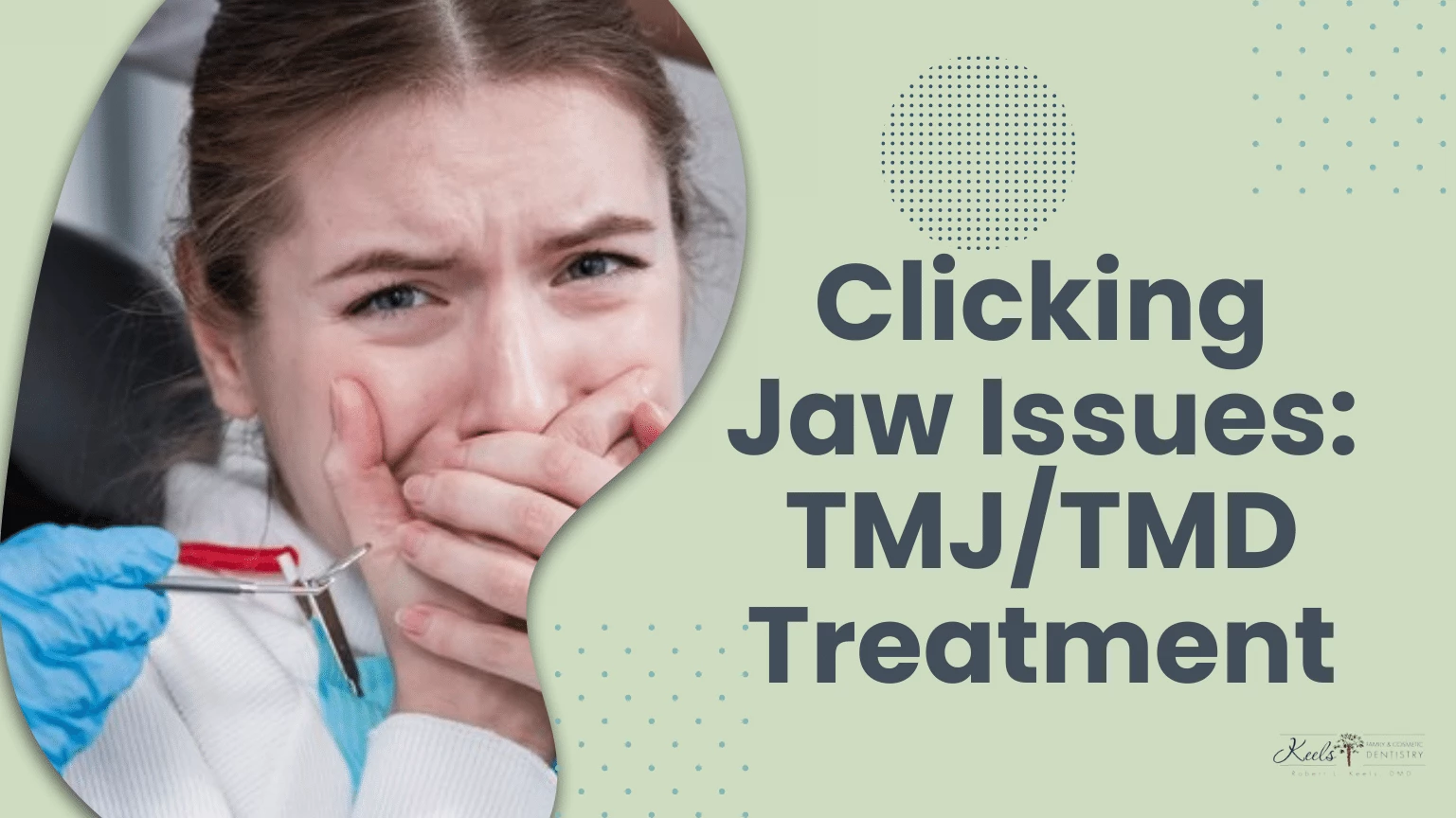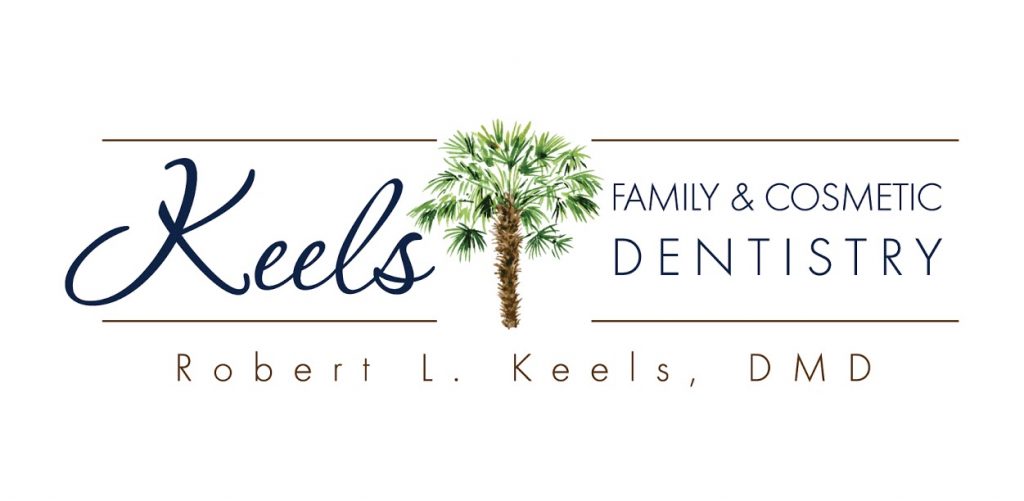 A clicking jaw can be more than just a peculiar sound—it can indicate a complex condition known as TMJ or TMD, which affects the temporomandibular joint, a critical component in jaw movement. This condition can cause discomfort, pain, and inconvenience, significantly impacting one’s quality of life.
A clicking jaw can be more than just a peculiar sound—it can indicate a complex condition known as TMJ or TMD, which affects the temporomandibular joint, a critical component in jaw movement. This condition can cause discomfort, pain, and inconvenience, significantly impacting one’s quality of life.
Understanding the causes, symptoms, treatment options, and where to find qualified professionals for TMJ/TMD is essential for anyone experiencing these issues.
What Causes Clicking Jaw Issues, And How Are They Related To TMJ/TMD?
Clicking jaw issues are often related to Temporomandibular Joint Disorder (TMD), which affects the joint connecting the jaw to the skull. The temporomandibular joint (TMJ) facilitates movement for chewing, talking, and yawning. Problems with this joint or the muscles controlling it can lead to TMD.
The causes of TMD and clicking jaw can vary, including jaw injury, arthritis, excessive gum chewing, stress, and habits such as teeth grinding (bruxism). Misalignment of the teeth or jaw and connective tissue diseases that affect the TMJ can also contribute to the development of TMD.
What Are The Common Symptoms Of TMJ/TMD, And How Can They Be Treated?
Apart from the characteristic clicking or popping sound when moving the jaw, symptoms of TMJ/TMD can include the following:
- pain or tenderness in the jaw
- aching pain in and around the ear
- difficulty chewing or discomfort while chewing
- facial pain
- locking of the joint, making it difficult to open or close the mouth
Treatment for TMJ/TMD varies based on the severity and cause of the condition. It can range from self-managed care practices such as eating soft foods, applying ice or heat, and avoiding extreme jaw movements to medical treatments.
Medical approaches include pain relievers, anti-inflammatories, muscle relaxants, oral splints or mouth guards, and physical therapy. Surgical interventions may be considered in severe cases, although they are generally seen as a last resort.
Are There Non-Surgical Options For Addressing TMJ/TMD-Related Clicking Jaw Problems?
Fortunately, many non-surgical options can effectively manage TMJ/TMD symptoms, including clicking jaw issues. These are focused on relieving pain, reducing joint stress, and improving jaw function. Non-surgical treatments include:
- Physical therapy: Exercises to strengthen jaw muscles, improve flexibility, and reduce pain.
- Oral splints or mouth guards: Devices worn to reduce the effects of clenching or grinding the teeth and to realign the jaw.
- Stress management techniques: Since stress can exacerbate TMJ/TMD symptoms, relaxation techniques, mindfulness, and stress management strategies can be beneficial.
- Dietary changes: Temporarily switching to a soft diet can lessen jaw strain.
- Medications: Over-the-counter pain relievers, anti-inflammatories, and muscle relaxants can help alleviate discomfort and inflammation.
These treatments, often used in combination, can significantly improve the quality of life for those suffering from TMJ/TMD without the need for invasive procedures.
Where Can Individuals Find Qualified Professionals For TMJ/TMD Treatment?
Finding the right healthcare professional is crucial for effectively managing TMJ/TMD. Typically, the journey starts with a visit to your dentist, as they are often the first to notice signs of TMJ/TMD during routine dental exams. Dentists specializing in TMJ disorders, oral surgeons, and orthodontists can provide diagnoses and treatment plans for TMJ/TMD.
In some cases, your dentist may refer you to a physical therapist who specializes in jaw issues or a pain specialist experienced in facial pain. Choosing a healthcare provider with specific training and experience in managing TMJ/TMD is essential to ensure the most effective treatment.
When searching for a professional, consider asking the following questions:
- What is your experience with treating TMJ/TMD?
- What treatment options do you typically recommend?
- Can you provide references from other patients with TMJ/TMD?
By understanding the causes and symptoms of TMJ/TMD and exploring surgical and non-surgical treatment options, individuals suffering from clicking jaw issues can take the first steps toward relief. With the right approach and professional guidance, managing TMJ/TMD symptoms effectively and improving your overall quality of life is possible.
Remember, if you’re experiencing symptoms of TMJ/TMD, it’s important to seek professional advice. Addressing the issue early can prevent further complications and pave the way for a smoother recovery. Don’t let TMJ/TMD keep you from enjoying life to its fullest—help is available, and recovery is possible.
Why Keels Family & Cosmetic Dentistry Is Your Top Choice for TMJ/TMD Treatment
At Keels Family & Cosmetic Dentistry, we understand the discomfort and disruption that TMJ/TMD can cause in your daily life. Our dedicated team, led by experienced dental professionals, is committed to providing personalized, effective treatment plans for our patients suffering from TMJ/TMD, including those experiencing clicking jaw issues. Here’s why we stand out as the best choice for your TMJ/TMD treatment needs.
Personalized Care Tailored to Your Needs
We provide individualized treatment programs because we know that every patient’s experience with TMJ/TMD is different. An in-depth assessment of your bite and jaw, utilizing cutting-edge diagnostic tools, is the first step in our all-encompassing approach to diagnosis. We then tailor a treatment plan to your specific needs, taking into account your symptoms, preferences, and way of life.
Advanced Treatment Options
Keels Family & Cosmetic Dentistry is equipped with the latest advancements in TMJ/TMD treatment technology. Our non-surgical treatment options, including custom-fitted oral splints, state-of-the-art physical therapy techniques, and stress reduction strategies, are designed to provide relief without requiring invasive procedures. We stay at the forefront of dental research to bring you the most effective, innovative solutions for TMJ/TMD.
A Compassionate Team That Cares
Our Keels Family & Cosmetic Dentistry team is skilled in dental care and compassionate professionals who understand the challenges of living with TMJ/TMD. We’re here to listen, support, and guide you through your treatment process, ensuring you feel comfortable and informed at every step.
Frequently Asked Questions
Q: What is the cost range for TMJ/TMD treatment at Keels Family & Cosmetic Dentistry?
A: The cost of TMJ/TMD treatment can vary widely depending on the complexity of the case and the specific treatments required. Generally, patients can expect costs to range from $500 to $3,000. We provide detailed cost breakdowns and work with you to explore insurance options and payment plans to ensure accessible treatment.
Q: How long does it take to see improvements in TMJ/TMD symptoms?
A: While some patients may notice improvements in their symptoms within a few weeks, others may require a longer treatment period to see significant changes. We monitor your progress closely and adjust your treatment plan to ensure the best outcomes.
Q: Can insurance cover TMJ/TMD treatments?
A: Many insurance plans offer coverage for TMJ/TMD treatments, but coverage can vary. Our office staff is experienced in working with insurance providers and can help you understand your coverage and maximize your benefits.
Choose Keels Family & Cosmetic Dentistry for Your TMJ/TMD Treatment
If you’re struggling with TMJ/TMD and clicking jaw issues, don’t wait any longer to seek treatment. Keels Family & Cosmetic Dentistry offers the expert care and support you need to find relief. Our personalized treatment plans, advanced treatment options, and compassionate team make us the best choice for managing your TMJ/TMD symptoms.
Contact us today to schedule your consultation. Let us help you take the first step toward a more comfortable, pain-free life. At Keels Family & Cosmetic Dentistry, your health and comfort are our top priorities, and we’re dedicated to providing you with the highest quality care.
Rediscover the joy of a life free from TMJ/TMD discomfort—reach out to us now, and let’s get started on your path to recovery.
